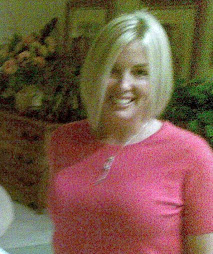In our current technology feeding frenzy, Mike Ribble asks us to stop and account for oursleves. Are we using technology appropriately? Are we good digital citizens? To qualify we must use technology safely, legally, and responsibly. We need to be committed to lifelong learning and have a positive attitude toward technology, while advocating appropriate use to others. In his article, Ribble identifies nine elements of digital citizenship: access; commerce; communication; literacy; etiquitte; law; rights and responsibilities; health and wellness; and last, but not least, security. However this is only the beginning of the conversation that should involve both teachers and parents; a four-stage cycle of integration is also necessary. The first stage is basic literacy coupled with instruction on appropriate use. Next is guided practice and exploration. Third, teachers and other adults need to practice what they preach and model good behavior, as well as discuss it. Fourth, adults offer constructive criticism on technology use--both in and out of school--in a supportive, open atmosphere.
I like Ribble's discussion of digital citizenship, although I would like to have seen a few more anecdotes or concrete examples. I think stories are always a good way to get your point across. The first time I read it, it seemed a bit jargon-laden with too many vague generalities. The second time I read it the ideas began to sink in better. But I think I'm a visual learner. And stories to me are like little movies in my mind that help me understand and remember things. For example, what would be an inappropriate use of technology in class? Are we talking about checking email or posting a video clip of your teacher biting into a ham sandwich. Outside of class are we talking about cyber-bullying or perhaps pirating music and selling cds on campus (like I saw one entrepreneurial middle school student do). I didn't see much on how parents are going to keep up with the pace of their children's use when some of them still look at a computer as though it's booby trapped. Perhaps he goes into more details in his book. Still he covered a lot of issues and showed how multifaceted the concept of digital citizenship is.
Questions:
What did you learn from this article about the status of your own digital citizenship?
There really is more to being technology savvy than just knowing how to perform a task on a computer. In looking over his nine elements of digital citizenship, I can see a need for improvement in every area. I guess I better read the book. I need to be less fearful in approaching some technology and experiment more in the area of communication. I'll go to Fry's or Best Buy and purchase new software, but I'm not always the first person to get the latest gadget. For me, if I don't own it, I probably won't learn to use it. I need to model a commitment to the technology. I love how President Obama refused to give up his Blackberry when he took office.
What insights did you get from the article on how to be a better teacher?
First of all, as teachers we need to model good digital citizenship. I liked the article's emphasis on working with parents. It's been apparent to me that some parents are lost when it come to technology and can't assist their children. For example, the class I'm substitute teaching for now uses the ARIES grading system and Turnitin.com (which is a website that checks papers for plaigerism). I've had calls from parents who have expressed trouble in using the system, so it would seem like a good idea to have a technology night where the parents could learn how to monitor their children's progress online. Perhaps this is already being done. Issues of safety, ettiquite, security, laws, and appropriate use could be addressed at such a meeting. This might be a way to start the conversation between parents, teachers, and students that the author mentions. I also liked the article's suggestion that teachers encourage an atmosphere of exploration and risk taking with new technologies. For his Eagle Scout project, my nephew created an animated public service announcement for the Houchin Blood Bank to encourage blood donation and it was really clever. He coordinated a group of other students in the project and it aired on television, but you wouldn't believe the resistance he got in proposing the project.
See my nephew's commercial spot on my education site list.



No comments:
Post a Comment